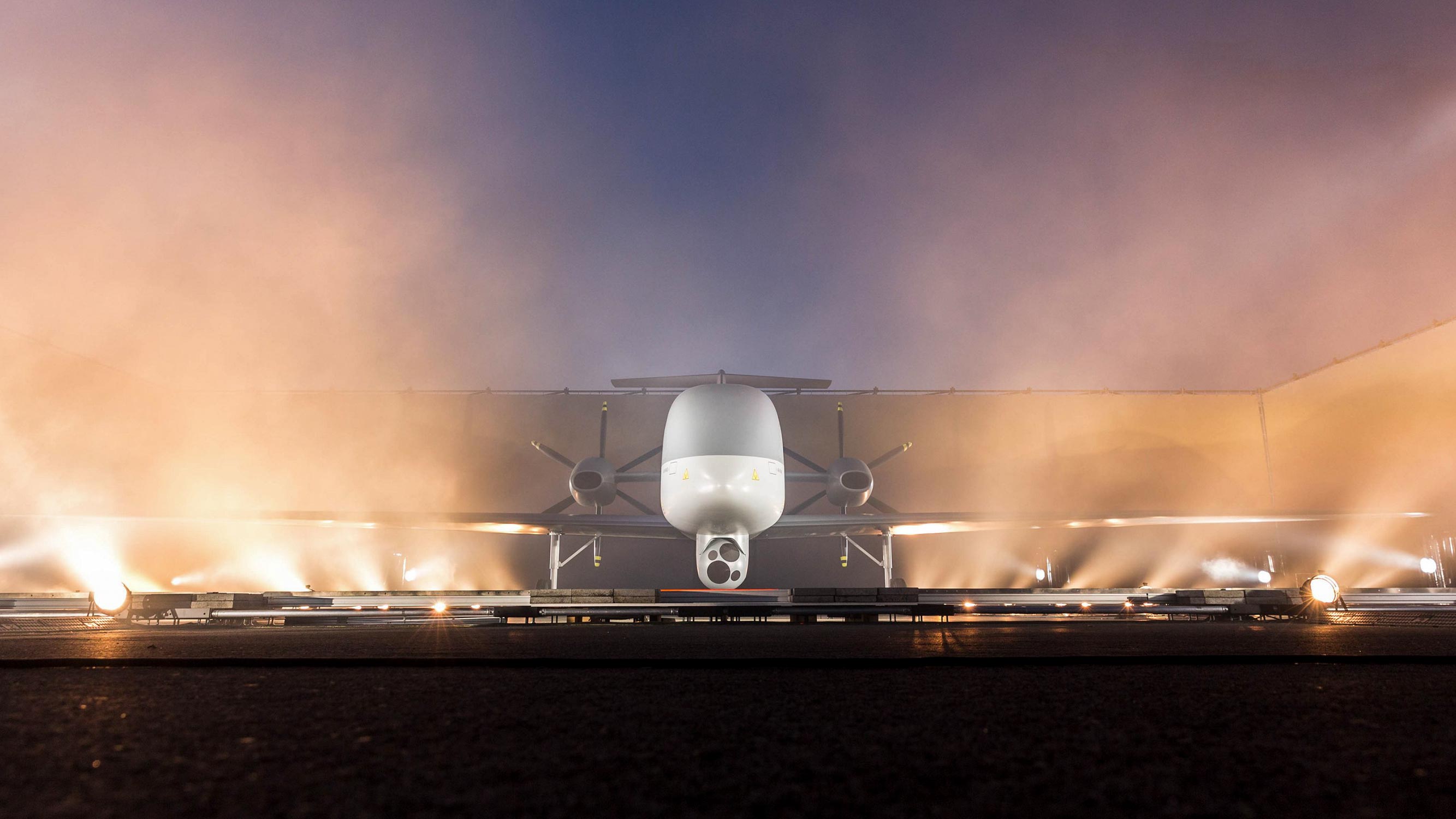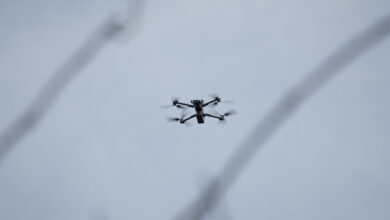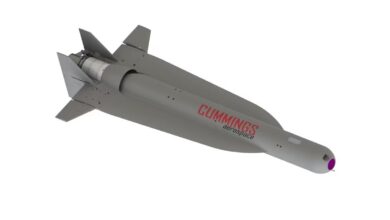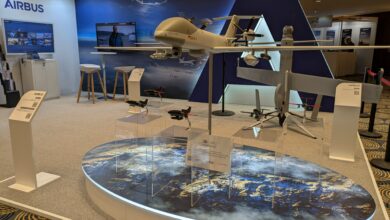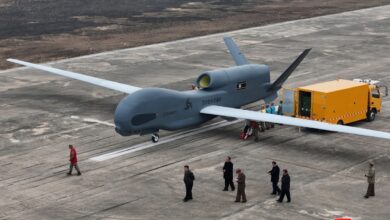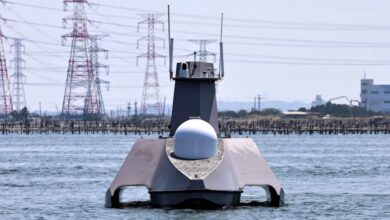EU allocates €525 million for defense projects including Eurodrone
The European Union will allocate €525 million to fund defense industrial and research projects in 2019 and 2020 including €100 million for the development of the Eurodrone, the European Commission said.
The Commission will allocate up to €500 million ($568 million) to co-finance joint defense industrial projects in 2019-2020, and an additional €25 million ($28 million) to support collaborative defense research projects in 2019, a Tuesday, March 19 release said, adding that the budget had been agreed with E.U. member states.
The E.U. is stepping up defense cooperation efforts, aiming to improve efficiency and effectiveness in military spending, and building towards the proposed €13 billion European Defence Fund which is slated for introduction in 2021, a key element in a strategy focused on enhancing Europe’s ability to guarantee its own security.
“European Defence is happening,” Commission Vice-President Jyrki Katainen, who is responsible for Jobs, Growth, Investment and Competitiveness said. “On the basis of this successful experience we will scale up funding to have a fully-fledged European Defence Fund in place in 2021.”
“To ensure Europe can protect its citizens, we need cutting-edge defence technology and equipment in areas like artificial intelligence, drone technology, satellite communication and intelligence systems,” Commissioner Elżbieta Bieńkowska, who is responsible for the Internal Market, Industry, Entrepreneurship and SMEs, said.
€100 million for Eurodrone development
The Commission allocated €100 million for the European Medium-Altitude Long-Endurance Remotely Piloted Aircraft System (MALE RPAS) programme, also known as Eurodrone.
The project, managed by the Organisation for Joint Armament Co-operation (OCCAR), aims to develop a twin-turboprop aircraft in two configurations: an intelligence, surveillance and reconnaissance version, and another which will be armed.
France, Germany, Italy and Spain are participants in the project, and Belgium holds observer status.
Prime contractor Airbus along with Dassault and Leonardo revealed a full-scale model at the Berlin Air Show in April 2018, and the system passed its preliminary design review in November.
Wait for it…! #eurodrone pic.twitter.com/iW9WGBk9js
— Sebastian Sprenger (@sprengkopf_dc) April 26, 2018
In addition, the Commission allocated €37 million to support the European Secure Software-defined Radio (ESSOR) interoperable military voice and data communications system, which is a PESCO project.
The remainder of the funding is to be allocated to other industrial and research projects.
The Commission published calls for proposals covering all domains under the European Defence Industrial Development Programme (EDIDP) – nine for 2019 and 12 for 2020.
The work programme will include: €80 million for CBRN threat detection capabilities, unmanned ground vehicles and counter drone systems; €182 million for cyber situational awareness and defense, space situational awareness and early warning capabilities, and maritime surveillance capabilities; €71 million for next-generation ground-based precision strike capabilities, ground combat capabilities, air combat capabilities and future naval systems; and €27 million for artificial intelligence, simulation and virtualisation technologies, and future-oriented solutions developed by SMEs.
The 2019 work program under the Preparatory Action on Defence Research will allocate €25 million for research in “Electromagnetic Spectrum Dominance and Future Disruptive Defence Technologies.”
The latter will “look at how best the E.U. can support disruptive technologies in defense that may lead to transformational changes in the military,” which “will help prepare the ground for the European Defence Fund which could allocate up to eight percent of its budget for disruptive technologies.”
European defense initiatives
Last June, the Commission proposed a budget of €13 billion for the European Defence Fund to cover the E.U.’s 2021-2027 financial period, including €4.1 billion for research and €8.9 billion for developing military capabilities.
Only collaborative projects involving at least three member states or associated countries can receive funding.
The Commission said the funding will “place the E.U. among the top four defense research and technology investors in Europe, and act as a catalyst for an innovative and competitive industrial and scientific base.”
The E.U. institutions reached a partial political agreement on the European Defence Fund in February, subject to approval by the European Parliament and Council.
The new fund is only one of a number of proposed or implemented European defense initiatives.
In June 2018, nine E.U. states signed up to a French plan for a European defense intervention group, including the United Kingdom which backs the measure as a way to maintain strong security ties with the bloc after Brexit.
The idea is for the so-called European Intervention Initiative to be able to lead humanitarian crisis efforts and evacuation operations as well as take on conventional military duties.
The same month, the E.U.’s diplomatic chief Federica Mogherini proposed a new €10.5 billion ($12.4 billion) “peace facility” that could pay for military equipment, including lethal weaponry, for partner countries in crisis zones such as Africa’s Sahel region.
Also in June 2018, six E.U. member states declared their intent to create cyber rapid response teams. Lithuania is the lead participant in the project, one of 17 announced when 25 E.U. member states established the Permanent Structured Cooperation on security and defense (PESCO) pact the previous December.
PESCO was introduced by the Lisbon Treaty and allows states participating the the joint framework to develop joint defence capabilities, invest in shared projects, and enhance the operational readiness and contribution of their armed forces.
Other PESCO projects include the establishment of a European medical command, E.U. training mission competence center, military disaster relief and an upgrade of maritime surveillance.
The pact prompted U.S. concerns that it would become a protectionist vehicle used to shield European defense companies from American competition.
But Brussels insisted there is no unfairness, with one official saying: “It is normal that European money goes to European companies.”

